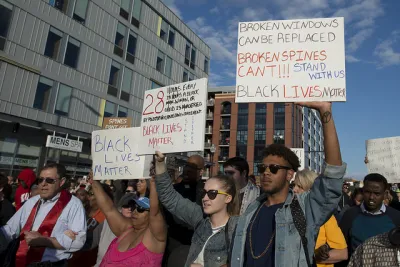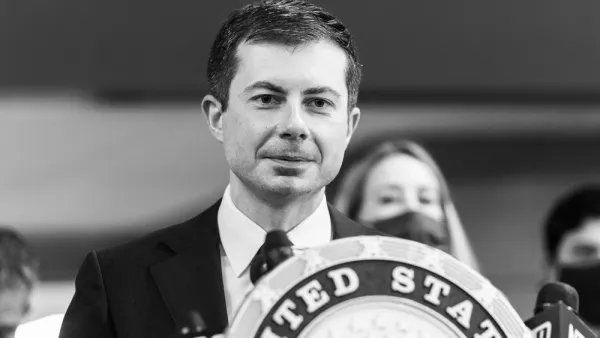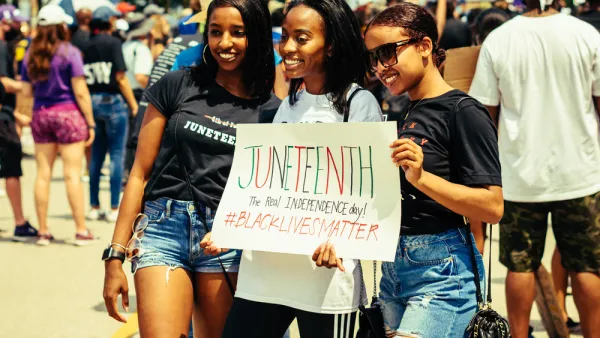Along with standing up against police violence and systemic racism, we must also fight to end housing systems that devalue Black people.

All I could think of as I scanned a crowd of 4,000 mostly young, white, earnest faces on the Winnetka Village Green was that to end the shame of systemic racism on Chicago’s North Shore, their next step should be to advocate that their suburbs permit affordable housing. Together, those young people can shape a local ethos of welcoming Black neighbors of all incomes and stop the nonsense of treating anyone who is not white or rich as “other.”
That June 6 solidarity rally was nearly 55 years to the day since another generation of north suburban Chicago residents, organized as the North Shore Summer Project and riding the crest of the mass movement for equal rights for Black Americans, held a demonstration of 10,000 people on that very spot. There, Dr. Martin Luther King Jr. famously exhorted, “We must learn to live together as brothers or we will perish together as fools.”
Open housing was indeed the focus of the civil rights movement in the North the way voting rights was in the South. If you wanted to put your finger on the most egregious manifestation of institutionalized racism, it was the unapologetic public and private real estate policies of steering Blacks to substandard housing in isolated Chicago neighborhoods and whites to job-rich and tree-lined neighborhoods and suburbs.
Choosing open housing as the organizing goal was clear. James Bevel, a key strategist of King’s Chicago campaign, said, “Coming up here in 1965, when they were telling me you can’t live here, there, I would not stand for that. That is more of an affront to me, and a violation of me, than not eating at a lunch counter, not going to the theater, or having to go to the back of the bus, and can’t vote. You just can’t tell a man he can’t live somewhere.”
Although President Lyndon Johnson signed the Fair Housing Act into law days after King’s assassination in 1968, real estate professionals, lenders, and indeed local governments have continued to discriminate against Blacks. Blacks are still shown fewer homes than whites and many municipalities and developers alike still use white-only models in promotional ads, perpetuating the perception that African Americans are not welcome. This is why affirmative marketing—taking steps to not merely post “equal opportunity” for all but to invite Black people and other underrepresented legally protected populations to move in—is essential.
Our whitest suburbs are also...
FULL STORY: Systemic Racism Starts and Ends with Housing

Analysis: Cybertruck Fatality Rate Far Exceeds That of Ford Pinto
The Tesla Cybertruck was recalled seven times last year.

National Parks Layoffs Will Cause Communities to Lose Billions
Thousands of essential park workers were laid off this week, just before the busy spring break season.

Retro-silient?: America’s First “Eco-burb,” The Woodlands Turns 50
A master-planned community north of Houston offers lessons on green infrastructure and resilient design, but falls short of its founder’s lofty affordability and walkability goals.

Test News Post 1
This is a summary

Analysis: Cybertruck Fatality Rate Far Exceeds That of Ford Pinto
The Tesla Cybertruck was recalled seven times last year.

Test News Headline 46
Test for the image on the front page.
Urban Design for Planners 1: Software Tools
This six-course series explores essential urban design concepts using open source software and equips planners with the tools they need to participate fully in the urban design process.
Planning for Universal Design
Learn the tools for implementing Universal Design in planning regulations.
EMC Planning Group, Inc.
Planetizen
Planetizen
Mpact (formerly Rail~Volution)
Great Falls Development Authority, Inc.
HUDs Office of Policy Development and Research
NYU Wagner Graduate School of Public Service




























